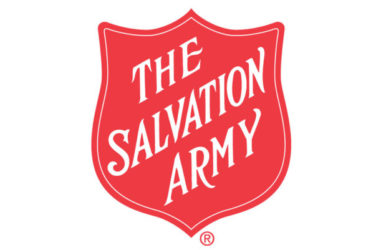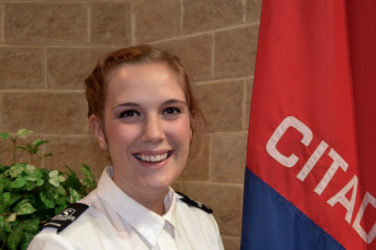Within a half hour of the first plane hitting the North Tower of the World Trade Center, Salvation Army canteens were onsite to support first responders. In the nearly nine months that followed 39,000 Salvation Army officers, soldiers, staff and volunteers served 3.2 million meals and provided emotional and spiritual care and practical resources to support thousands of recovery personnel, as well as providing food, clothing, financial assistance and other crucial social services to survivors, victims’ families and others who were affected. Operations at Ground Zero were The Salvation Army’s largest mobilization on U.S. soil. Here, three of the many who served share their reflections.
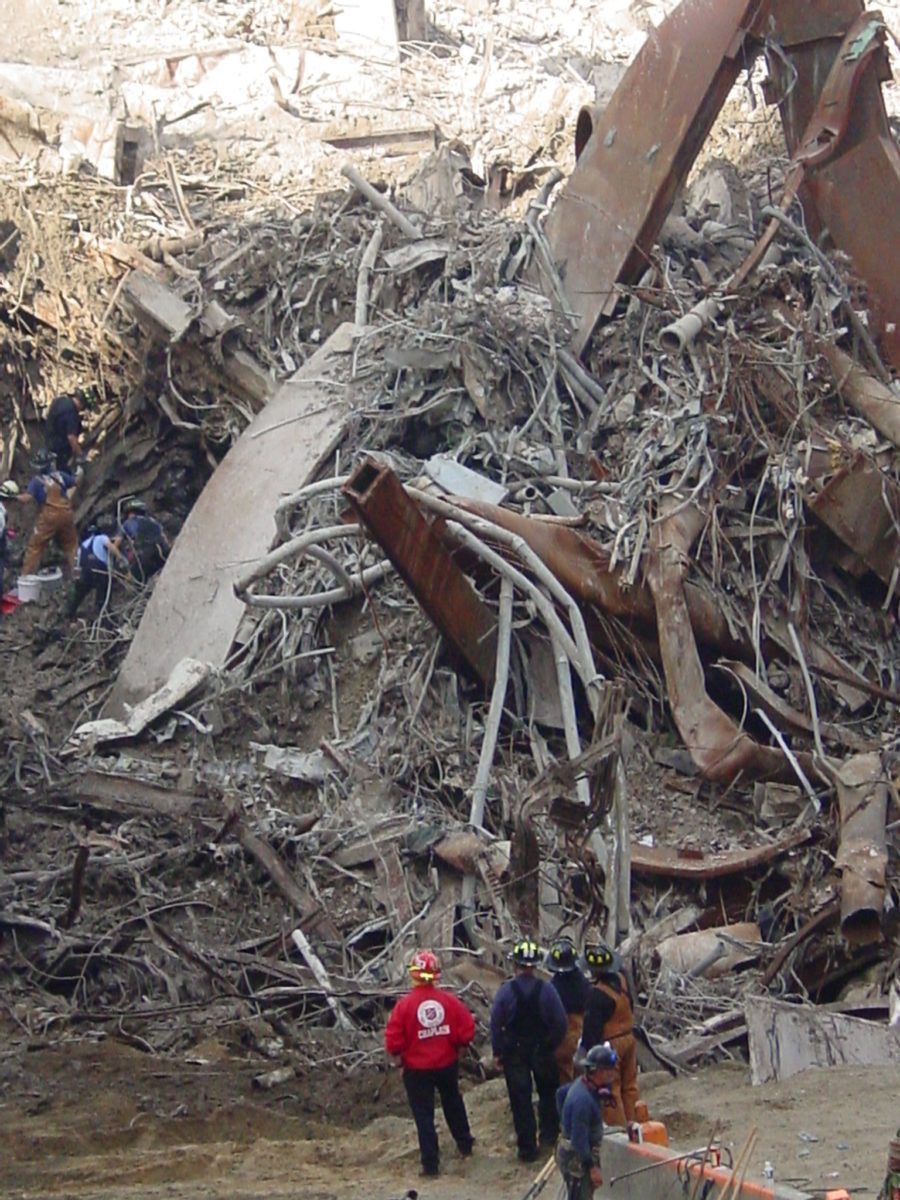
A sustaining presence
by Major Mike McKee
In October 2001, I began my first of two deployments in New York City to assist in the aftermath of the terrorist attacks. While time has blurred many details, etched in my memory are sights that cannot be unseen and the pungent smells at Ground Zero. The grief in the eyes of first responders is impossible to forget, but so is God’s faithfulness.
I served as a chaplain, working in “the pit” at Ground Zero to provide support and encouragement for the FBI, police, firefighters and heavy machine operators who were removing debris, recovering human remains and preserving evidence. Whenever human remains were found, I would perform a short but dignified memorial service to honor the life and selfless sacrifice of the fallen and to ask God for His grace, mercy and sustaining presence to be with those who were left behind to carry on. Very often, these ceremonies provided precious opportunities to witness to men and women individually as they asked questions about why God allowed this to happen.
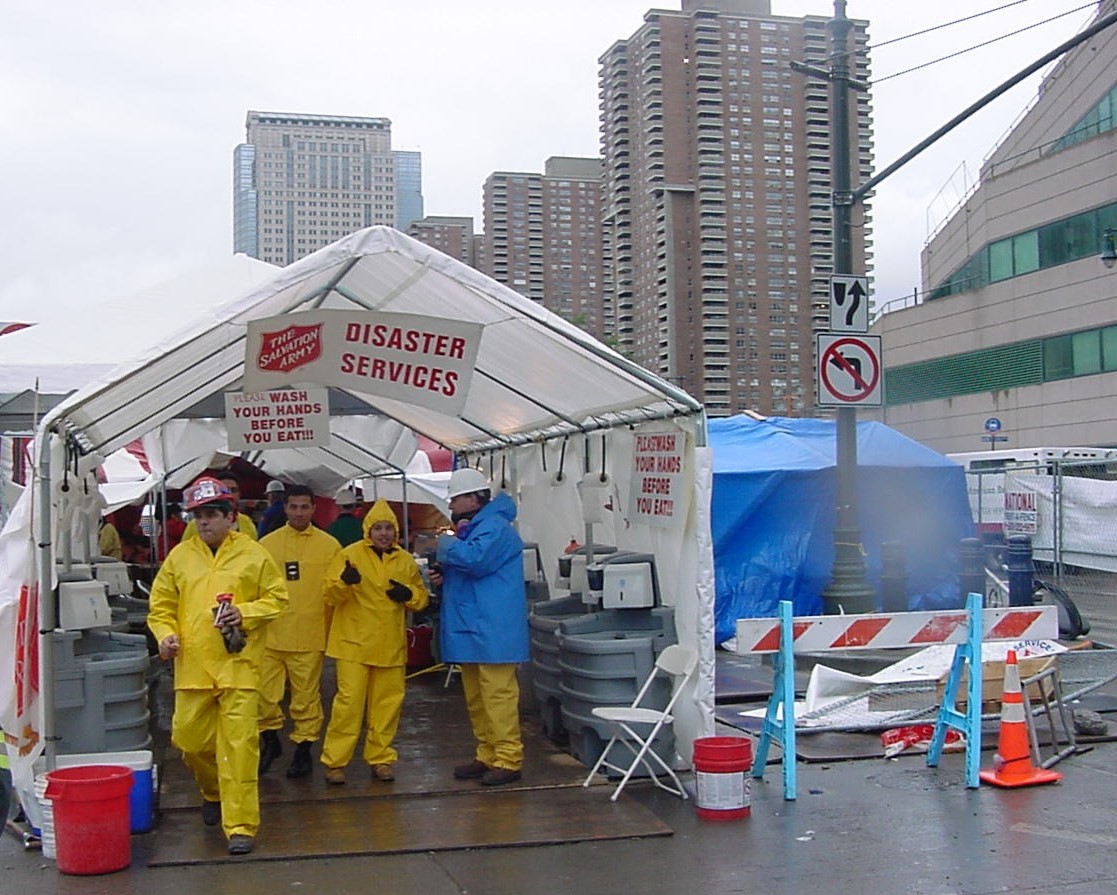 One particularly difficult Monday morning, we found the remains of a firefighter just after we started our shift. After calling for firefighters from around the area, we performed the memorial service, which was always an emotional event. As the ambulance containing the flag-covered body of the hero firefighter pulled away, a call came that remains of a police officer had been recovered quite a distance from our spot; they were looking for a chaplain to perform the memorial service. A Gator was quickly sent to get me.
One particularly difficult Monday morning, we found the remains of a firefighter just after we started our shift. After calling for firefighters from around the area, we performed the memorial service, which was always an emotional event. As the ambulance containing the flag-covered body of the hero firefighter pulled away, a call came that remains of a police officer had been recovered quite a distance from our spot; they were looking for a chaplain to perform the memorial service. A Gator was quickly sent to get me.
Arriving at the other side, I saw a large group had gathered, including a surprising number of non-uniformed civilians and, unexpectedly, New York City Police Commissioner Bernard Kerik. Since the deceased policeman was still wearing his badge, they knew who he was. I was introduced to his wife, who was sobbing uncontrollably, and spoke with her briefly and prayed with her. Then we held the service. Afterward, I went to a nearby aid station to decompress and regain my composure and called
my father to unburden my heart. Feeling a bit better, I knew I needed to return to my post so I ended the call by asking my dad to pray that the little I was able to offer would somehow be a blessing to the heroes who were faithfully serving in such dire circumstances.
 As I hung up and turned to leave, I came face-to-face with the biggest fireman I had ever seen. He apologized for having listened to my comments, and, with tears in his eyes, he hugged me and said he couldn’t imagine how he could continue working without the love and concern demonstrated by the service of The Salvation Army. He had recognized God working through us.
As I hung up and turned to leave, I came face-to-face with the biggest fireman I had ever seen. He apologized for having listened to my comments, and, with tears in his eyes, he hugged me and said he couldn’t imagine how he could continue working without the love and concern demonstrated by the service of The Salvation Army. He had recognized God working through us.
When I recall my time in New York, I can’t help but be reminded that while I was working to be a practical expression of the Lord’s unfailing love, grace and mercy to those who desperately needed it, God provided encouragement and affirmation to me when I needed it the most. God has promised He will “never leave us nor forsake us.” His faithfulness during the 9/11 response confirmed this for me beyond a doubt, and I will be forever grateful.
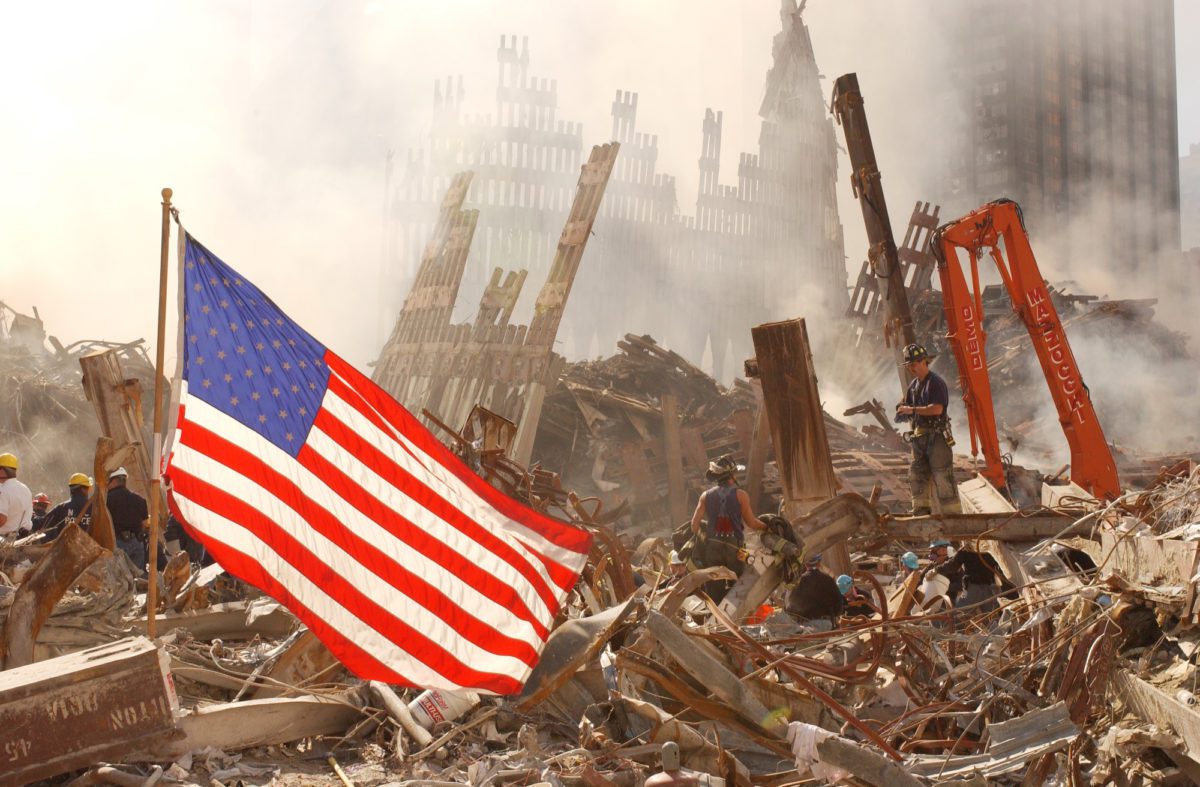
Andrea Booher/FEMA
Serving in the Red Zone
by Linda Burkle, PhD
I was sitting in our weekly Divisional Finance Board when a colleague interrupted to say a plane had hit one of the World Trade Center towers in New York City.
One week later I was in New York with a ministry team. The ash and smoke that permeated the air served as a vivid metaphor of the profound collective grief and shock that hung over the city. Every breath of air tasted of death. Spontaneous memorials of photos of loved ones killed and missing, flowers and other objects dotted the cityscape. Parking garages filled with cars covered with ash served as reminders of those lost. There were so many questions and no answers. The World Trade Center was reduced to rubble, a ghastly specter—all that remained of the crown jewel of capitalism. New York City, the global epicenter of finance and wealth, staggered with a sense of vulnerability.
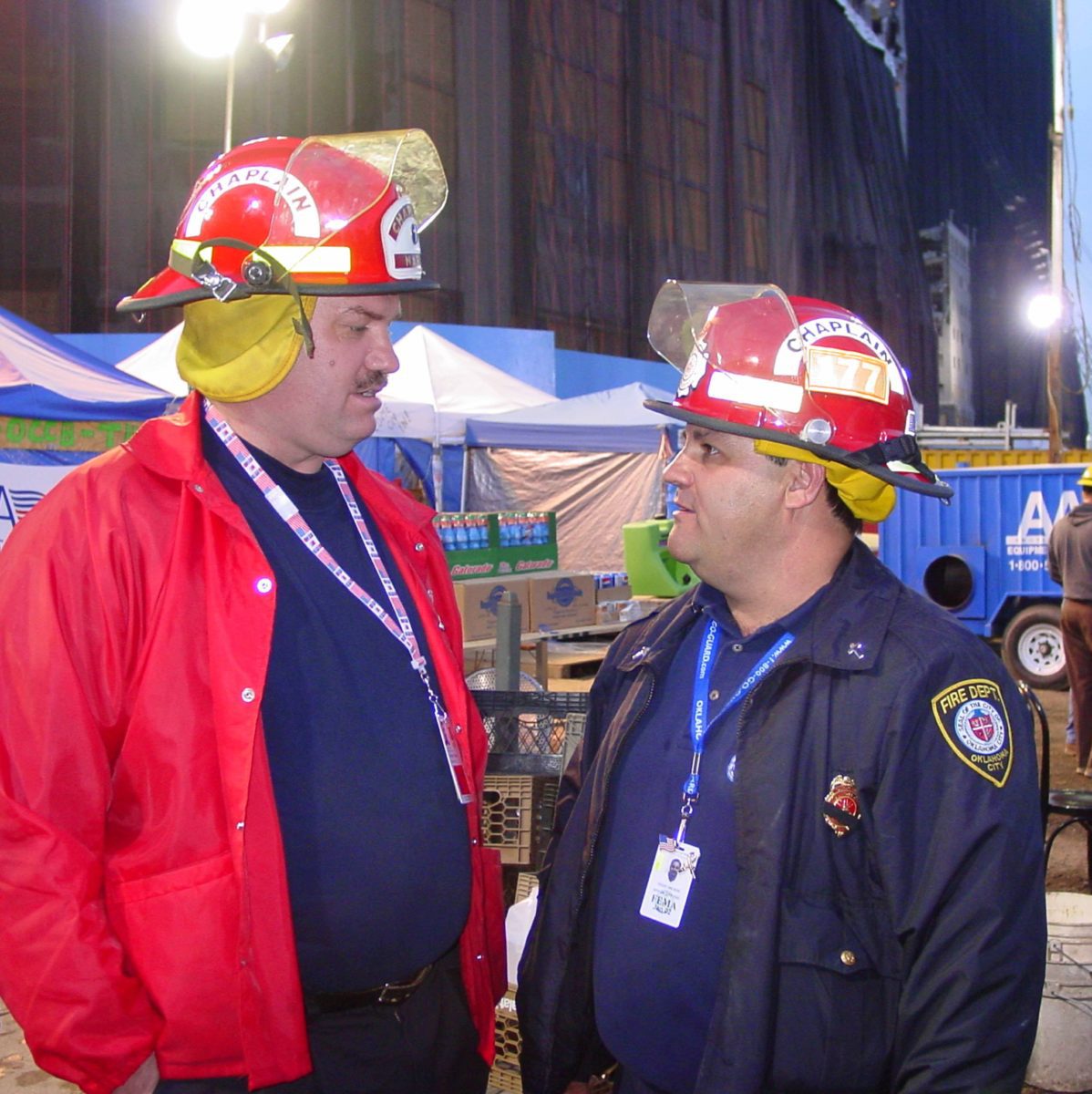 It was like nothing we had endured, and we had no experiential compass to navigate the situation and our responses. Thus, the focus of our ministry as crisis intervention responders was addressing the emotional and psychological needs of people living in unbelief, shock and grief.
It was like nothing we had endured, and we had no experiential compass to navigate the situation and our responses. Thus, the focus of our ministry as crisis intervention responders was addressing the emotional and psychological needs of people living in unbelief, shock and grief.
In November, I was back in New York as Red Zone coordinator at Ground Zero. A life-changing experience, it became one of those “hinge” moments in time between what was and what is. The pile of rubble in September had become a huge smoldering pit, a 30-foot deep “deconstruction site.” In some spots the temperature exceeded 1,000 degrees. Mingled with mangled metal and twisted steel were ashes and corpses of victims—an ever-present reality etched on the faces of those working around the clock in this strange “gated community” where ID badges were scrutinized for entry. Twenty-four hours a day, seven days a week large dump trucks came and went, filled with debris and decaying human remains, to a dump site called “fresh-kill,” an eerily ironic name indeed.
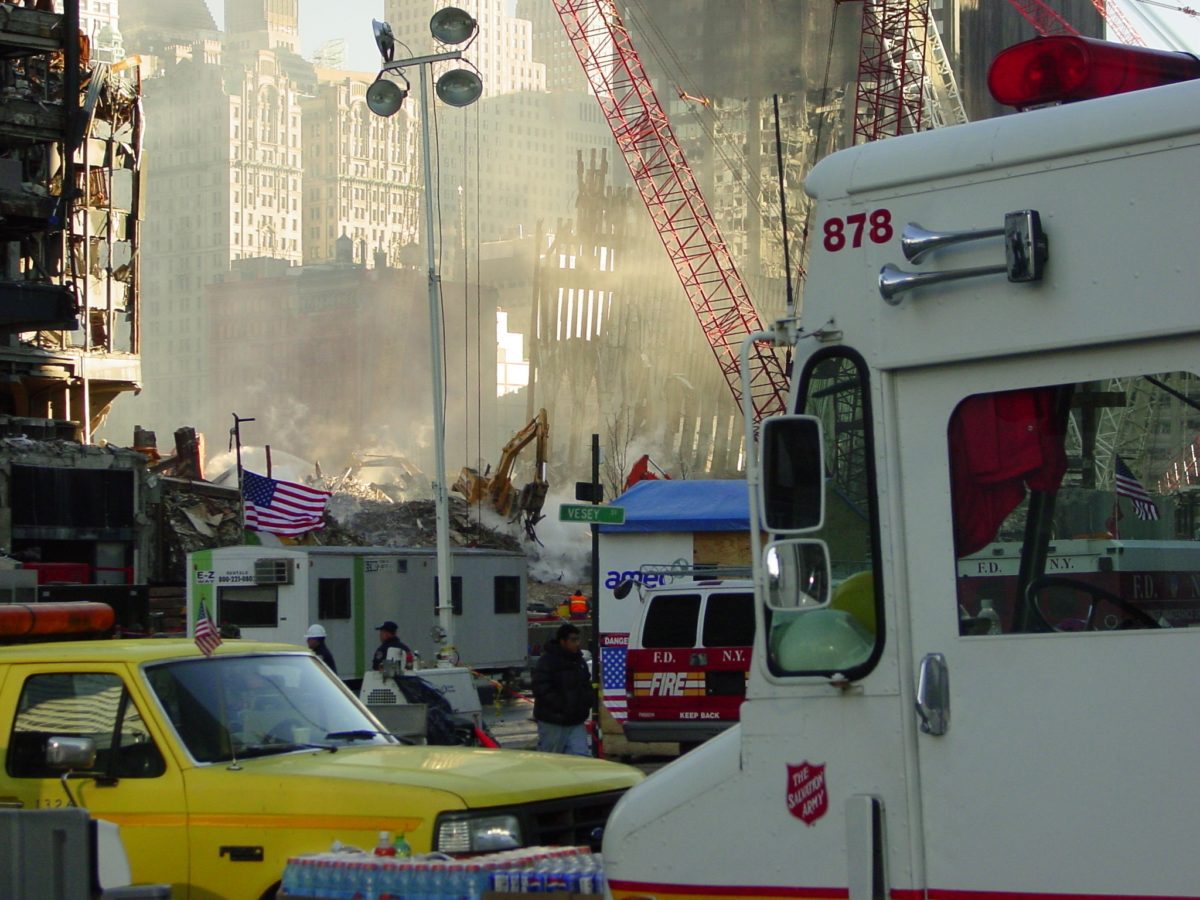 My life existed within the perimeters of the Red Zone and my hotel room nearby. As Red Zone coordinator, I managed our 24-hour-a-day feeding and hydration sites. No matter the hour, the Red Zone was bustling with the activity of heavy earth moving equipment, trucks and cranes. Construction workers, police officers, firefighters and countless government regulators filled the area. We fed them hot meals, made sure they were hydrated, sat with them on breaks, listened to those who wanted to talk, and provided clean socks and new boots when the soles were melted away. I reminded our team each day that our #1 job was to “give them Jesus.”
My life existed within the perimeters of the Red Zone and my hotel room nearby. As Red Zone coordinator, I managed our 24-hour-a-day feeding and hydration sites. No matter the hour, the Red Zone was bustling with the activity of heavy earth moving equipment, trucks and cranes. Construction workers, police officers, firefighters and countless government regulators filled the area. We fed them hot meals, made sure they were hydrated, sat with them on breaks, listened to those who wanted to talk, and provided clean socks and new boots when the soles were melted away. I reminded our team each day that our #1 job was to “give them Jesus.”
Perhaps my most poignant memory is one day at 1:30 a.m. when the remains of a firefighter had been discovered and excavated from “the pit.” I watched in silence as the body bag was hoisted up, then draped with an American flag. Standing in reverence, I joined two lines of firefighters and police officers as the remains passed between us. I recall holding my Bible to my chest and quietly reciting the 23rd Psalm as my tears fell. The faces surrounding me wept without tears; there were none left.
My most meaningful ministry
by Lt. Colonel Robert Webster
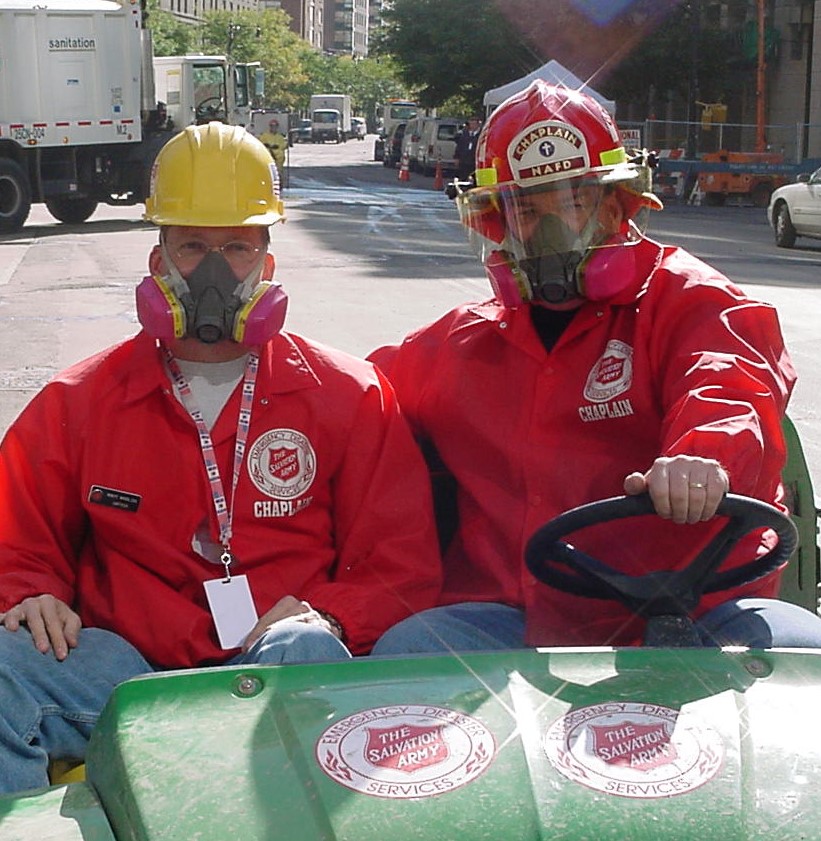 Recently attending my nephew’s wedding, I was asked, “Colonel, what has been the single most important thing you believe you have done in your ministry?” After thinking for a minute, I responded, “Serving as a chaplain with the Fire Department of New York (FDNY) after the terrorist attack on the World Trade Center buildings in Manhattan.”
Recently attending my nephew’s wedding, I was asked, “Colonel, what has been the single most important thing you believe you have done in your ministry?” After thinking for a minute, I responded, “Serving as a chaplain with the Fire Department of New York (FDNY) after the terrorist attack on the World Trade Center buildings in Manhattan.”
For me, this site will be remembered forever as Ground Zero, “hell on earth” for its intense heat and smells of destruction and decay—a place where God wept as we cried over thousands of lives lost and carnage that hadn’t been seen in the U.S. since the attack on Pearl Harbor. A 110-story building utterly unrecognizable in a graveyard of twisted steel and pulverized concrete.
I was privileged to work alongside the FDNY men and women responsible for the recovery of those who died. When the remains of firefighters were discovered, a large processional was formed to honor the heroic sacrifice of individuals who gave everything when they ran into the building to save others.
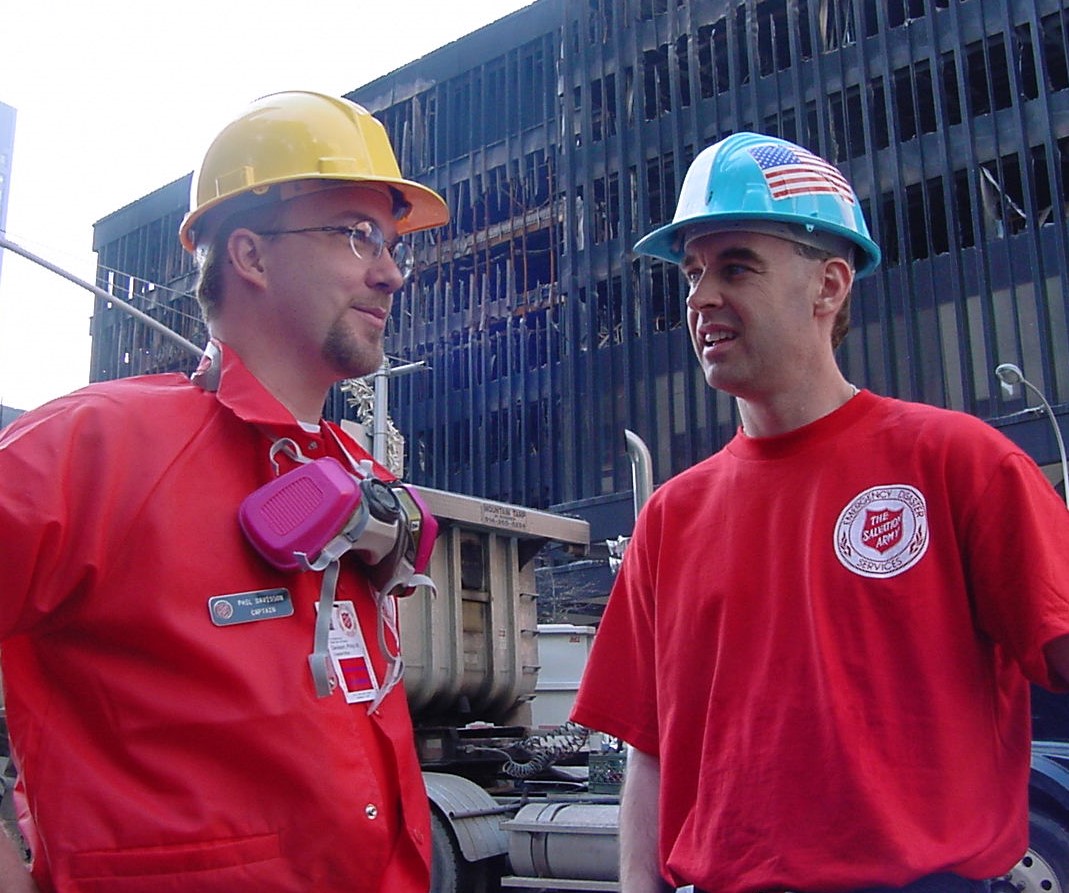 I would gather everyone together to pray the Lord’s Prayer and even give last rites which I learned how to administer as a proxy for Catholic priests who were on site but not permitted on the pile. It was a high honor that I did not take lightly. We prayed and cried and then encouraged those working to continue as there were so many more to find. Following our time of prayer, I was given the privilege of leading the procession as the firefighters would carry the remains of their brother to the temporary
I would gather everyone together to pray the Lord’s Prayer and even give last rites which I learned how to administer as a proxy for Catholic priests who were on site but not permitted on the pile. It was a high honor that I did not take lightly. We prayed and cried and then encouraged those working to continue as there were so many more to find. Following our time of prayer, I was given the privilege of leading the procession as the firefighters would carry the remains of their brother to the temporary
morgue down the hill. I will be forever grateful for my brother in Christ, Major Monty Wandling, who was alongside me, keeping me strong and lifting me up before the Lord.
Indeed, it was only through the Lord’s strength that I could complete such a mission. So, 20 years later I remember those days as though they were yesterday, and tears flow as I write this reflection.
I am often reminded of the events of 9/11 when I walk by a construction site and smell concrete dust, or I unexpectedly smell diesel fuel. I remember. It’s burned into my heart and mind, as are the lessons I learned: to be thankful for each day, to forgive others, to love unconditionally.

